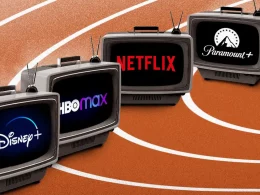Introduction
he world of entertainment has been evolving rapidly, and one of the most dynamic and fast-growing sectors is esports. Esports, or electronic sports, refers to competitive video gaming where players and teams compete in various games for prizes, recognition, and glory. This phenomenon has not only captivated millions of fans worldwide but has also created a myriad of new career opportunities. This article delves into how esports is paving the way for new entertainment careers, highlighting the diverse roles and pathways emerging within this thriving industry.
The Rise of Esports

Esports has experienced exponential growth over the past decade, transitioning from a niche hobby to a mainstream entertainment juggernaut. Major tournaments like The International, the League of Legends World Championship, and the Overwatch League have drawn millions of viewers and offered multi-million dollar prize pools. This surge in popularity has attracted significant investments from traditional sports organizations, media companies, and brands, further solidifying esports’ place in the entertainment landscape.
-
A New Era of Competition
Esports has evolved dramatically over the past two decades. With massive online multiplayer games attracting millions of players and viewers worldwide, events like The International (Dota 2) and the League of Legends World Championship have become monumental gatherings, drawing audiences comparable to traditional sports. This growth is fueled by advancements in technology, social media, and streaming platforms, making esports accessible to a global audience.
-
Financial Growth and Investment
The financial landscape of esports has shifted significantly, with investments pouring in from venture capitalists, corporations, and traditional sports teams. Sponsorship deals, merchandise sales, and advertising revenue are just a few revenue streams contributing to the industry’s rapid expansion. In 2023, the global esports market was valued at approximately $1.44 billion, with projections suggesting it will reach $3.6 billion by 2025. This growth indicates the potential for lucrative careers within the industry.
Diverse Career Opportunities in Esports

The growth of esports has created a wide range of career opportunities, extending far beyond the role of professional gamers. Here are some of the key career paths within the esports industry:
1. Professional Players
At the forefront of the esports industry are the professional players who compete at the highest levels. These individuals dedicate countless hours to mastering their chosen games and often sign with professional teams. Their careers are akin to traditional athletes, complete with rigorous training schedules, sponsorships, and fan followings.
2. Coaches and Analysts
Just as in traditional sports, esports teams require skilled coaches and analysts to strategize, train, and guide players. Coaches develop training regimens, analyze opponents, and provide crucial in-game advice. Analysts, on the other hand, dissect gameplay footage to identify strengths, weaknesses, and trends, helping teams refine their strategies.
3. Shout casters and Commentators
Shout casters and commentators play a vital role in making esports events engaging and accessible to viewers. These professionals provide live commentary, analysis, and play-by-play descriptions of matches, adding excitement and context to the action. Their ability to entertain and inform audiences is crucial to the overall viewing experience.
4. Event Organizers and Producers
The success of esports tournaments and events hinges on meticulous planning and execution. Event organizers and producers are responsible for coordinating every aspect of these events, from securing venues and sponsors to managing logistics and ensuring a seamless broadcast. Their work ensures that both live and online audiences have a memorable experience.
5. Content Creators and Influencers
Esports has given rise to a new breed of content creators and influencers who produce a wide range of content, including live streams, YouTube videos, and social media posts. These individuals build personal brands, engage with fans, and often collaborate with sponsors and organizations. Their influence extends beyond gameplay, encompassing lifestyle, entertainment, and culture.
6. Game Developers and Designers
The esports ecosystem relies on the games themselves, making game developers and designers integral to the industry. These professionals create and maintain the games that become the foundation of competitive play. Their work involves balancing gameplay mechanics, designing engaging experiences, and supporting the esports community.
7. Marketing and Public Relations
As esports continues to grow, the need for effective marketing and public relations becomes paramount. Marketing professionals promote events, teams, and brands, while public relations experts manage the image and reputation of players and organizations. Their efforts drive fan engagement and attract sponsors.
8. Broadcast and Production Crew
Behind every successful esports broadcast is a dedicated production crew. Camera operators, sound technicians, graphic designers, and directors work together to deliver high-quality streams and broadcasts. Their technical expertise ensures that viewers have a seamless and immersive experience.
9. Business and Management
Esports organizations operate as businesses, requiring skilled professionals in management, finance, and operations. These individuals handle contracts, negotiate sponsorship deals, manage budgets, and ensure the overall sustainability of the organization. Their work is essential for the long-term success of esports enterprises.
The Diversity of Roles in Esports

The esports industry offers a wide range of career paths beyond just playing games. From graphic designers creating logos and merchandise to engineers developing new gaming technology, there are many opportunities for people with different skills. This diversity allows individuals to find a niche that suits their talents, making esports an appealing career choice for many.
2. Growth in Support Roles
As the industry grows, so does the demand for support roles. Positions in customer service, legal consulting, and financial management are increasingly essential. These roles help teams and organizations operate smoothly, allowing players to focus on their performance. For those interested in supporting the esports ecosystem, these careers offer exciting prospects and the chance to be part of a vibrant community.
The Future of Esports Careers

The future of esports careers looks promising, with continued growth and innovation on the horizon. As technology advances, new opportunities will emerge, such as virtual reality esports, augmented reality experiences, and enhanced fan engagement through interactive platforms. Additionally, educational institutions are recognizing the potential of esports, offering courses and degrees in esports management, game design, and related fields.
Looking ahead, the future of esports careers appears promising. As the industry matures, new roles will continue to emerge, from legal professionals specializing in esports contracts to educators developing academic programs focused on competitive gaming. The integration of esports into mainstream culture will also lead to collaborations with various sectors, including healthcare, education, and technology. As the demand for esports-related content and experiences grows, so will the opportunities for passionate individuals seeking to make their mark in this dynamic field.
Analysis of Esports Careers
The following table provides a comprehensive analysis of various careers within the esports industry, highlighting key aspects such as job responsibilities, required skills, and potential earnings.
| Career Path | Responsibilities | Required Skills | Potential Earnings |
| Professional Player | Competing in tournaments, streaming, and engaging fans. | Game knowledge, teamwork, strategy. | $50,000 – $5 million/year |
| Content Creator | Streaming gameplay, creating videos, and building community. | Creativity, video editing, communication. | $20,000 – $2 million/year |
| Team Manager | Overseeing team operations, handling logistics. | Organization, communication, marketing. | $40,000 – $150,000/year |
| Coach | Developing strategies, training players, analyzing gameplay. | Leadership, strategic thinking, game analysis. | $30,000 – $100,000/year |
| Event Manager | Organizing tournaments, managing logistics and production. | Project management, multitasking. | $40,000 – $120,000/year |
| Marketing Specialist | Promoting teams and events, creating campaigns. | Marketing knowledge, creativity. | $50,000 – $100,000/year |
Comparative Analysis of Esports vs. Traditional Sports Careers
The following table compares careers in esports with those in traditional sports, highlighting similarities and differences in aspects such as entry barriers, earning potential, and market growth.
| Aspect | Esports Careers | Traditional Sports Careers |
| Entry Barriers | Lower; skills can be self-taught via online platforms. | Higher; often requires formal training or college. |
| Earning Potential | Varies widely; top players can earn millions. | Generally high; top athletes earn substantial contracts. |
| Market Growth | Rapidly expanding with diverse opportunities. | Established but faces challenges in engagement. |
| Public Perception | Still gaining legitimacy, particularly among older demographics. | Well-established, widely recognized. |
| Career Longevity | Often shorter; players may retire in their 20s. | Varies; many athletes have longer careers in coaching or commentary. |
Conclusion
Esports is undeniably paving the way for new entertainment careers, offering diverse and exciting opportunities for individuals with a passion for gaming and technology. From professional players and coaches to content creators and business managers, the esports industry is a vibrant ecosystem with roles to suit a wide range of skills and interests. As esports continues to evolve, it will undoubtedly shape the future of entertainment and create even more pathways for aspiring professionals.












